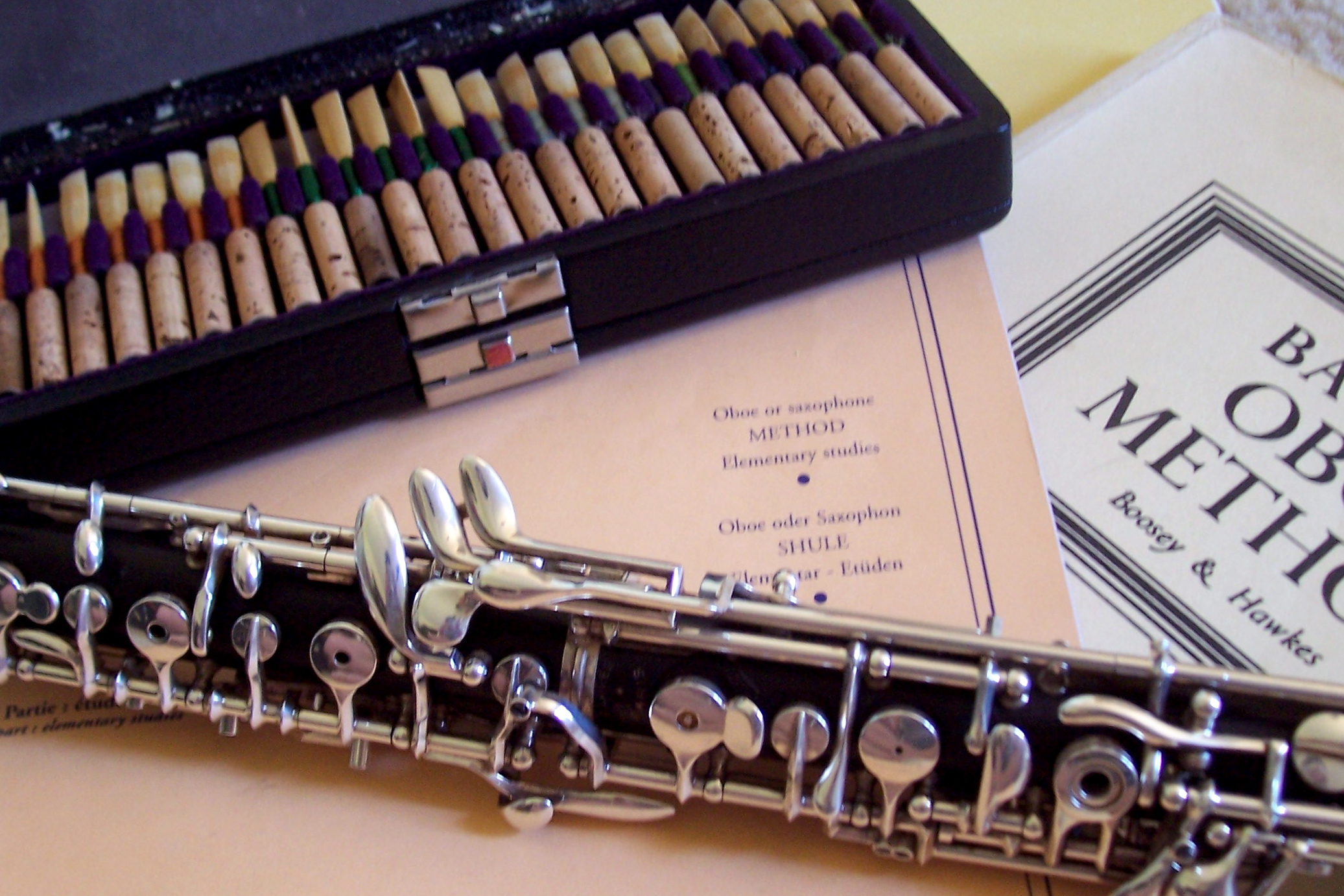I have many of these items here on my own site. Other links here are affiliate links to Amazon.com – it’s convenient for everyone and Amazon pays me a tiny commission when you buy. But the remainder go to Nielsen Woodwinds, or to Hodge Products – because sometimes you really need a dedicated double reed shop to get what you need.
First, a disclaimer. I am not telling you to buy anything, or insisting on any one method book, oboe model, or piece of reed-making equipment. I do get questions all the time, though, about these things, and on this page I will lay out many of the things I have found to work. Based on your individual needs you might gravitate to one specific thing or another – or use something completely different. If you have questions, feel free to reach out!
As an Amazon Associate I earn from qualifying purchases. This means that some links below are affiliate links, and I make a small commission when you buy through them. There is no extra cost to you.
Knife
The most important item is the knife, and I like a double hollow ground blade like this Chiarugi knife. The knife is nicely balanced and easy to use, and it is soft enough to sharpen easily and hard enough to hold its edge. It’s also extremely affordable compared to other professional knives. I also like this version of it at Nielsen’s, because of the comfortable handle.

Cutting Block, Plaque, Mandrel, Thread and Ruler
You’ll need a cutting block and a plaque (get several, because they get lost easily). A mandrel and a spool of FF thread should be all the items you need to get started. Well, and a ruler with millimeters and a pencil, but you don’t have to shop at an expensive double reed store for those.

Sharpening Stone and Shapers
My long-time favorite sharpening stone is by Spyderco, and I’ve recently become enamored of this diamond stone as well. Of course, as your reed-making becomes more advanced, you will want to experiment with shapes and with gougers. My current favorite shapers are from Adam Shaper Tips – the Caleb-1, Joshua +2, and also the RDG-1N. I use an Innoledy gouging machine, and a Ross gouger for English horn.

Reeds and Reed Cases
I would recommend having at least three reeds in your case at all times, and using them in rotation so that you always have something that works. As they wear out, you should replace them.
For a young beginner, there is no need to start out with expensive hand-made reeds. Lesher reeds and Eastman reeds, available at your local music store as well as at Amazon, should be fine. As those machine-made choices become limiting – WHICH THEY DEFINITELY WILL – we can talk about stepping up to my reeds or someone else’s, or learning to make your own.
Additionally, you will want a good quality case to keep them in. The mailing tubes that they arrive in do not allow ventilation or protect the reeds well. I have a variety available on my site or you might check out Amazon’s offerings.
